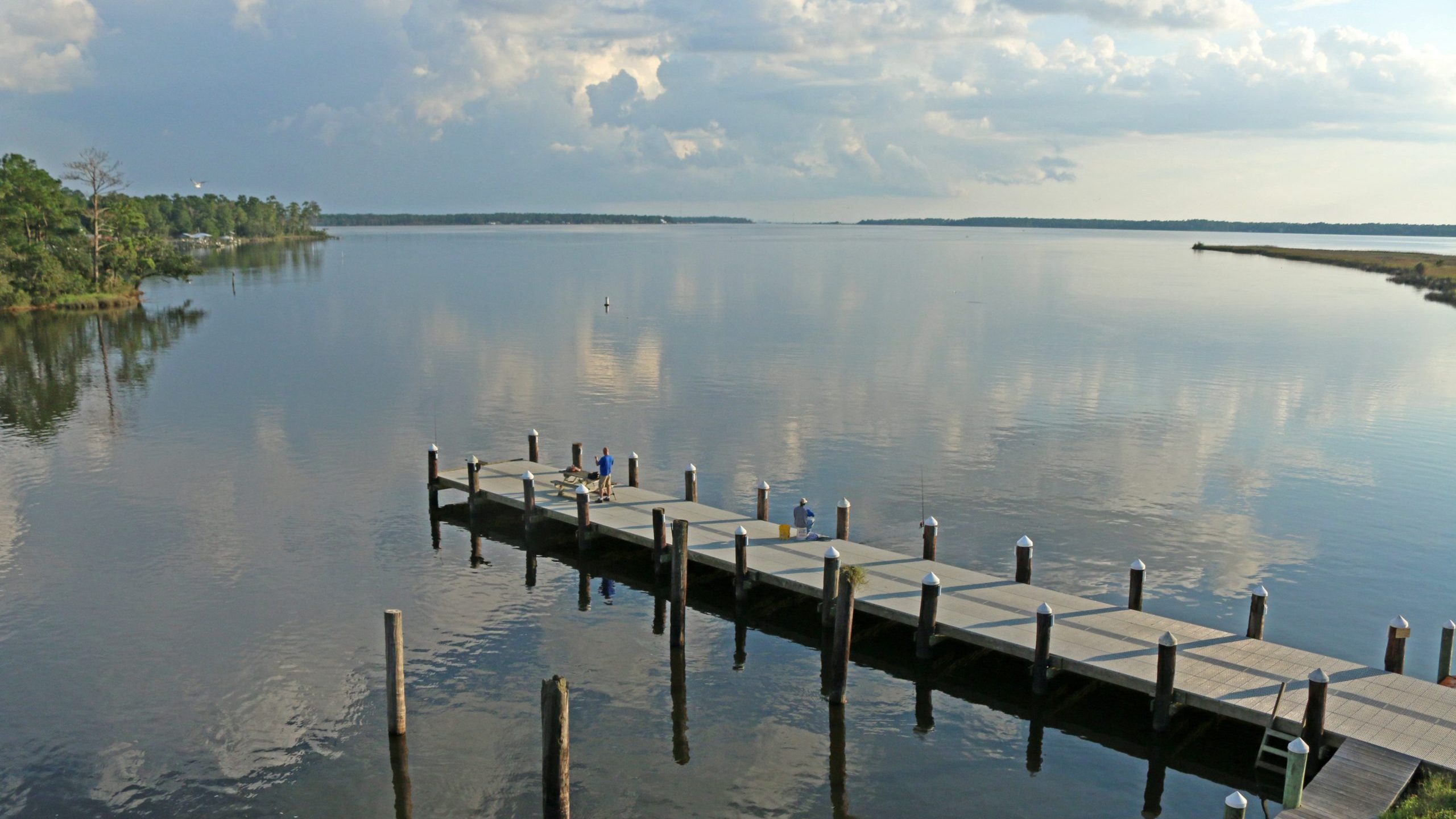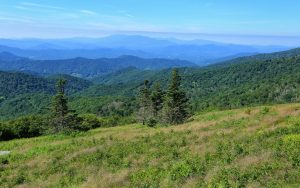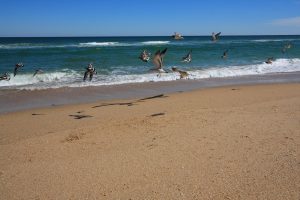Summer 2020 Newsletter

Summer 2020 Newsletter
Welcome to the Southeast Climate Adaptation Science Center’s Summer 2020 Newsletter.
For news and upcoming events related to the Southeast Climate Adaptation Science Center,
subscribe to our monthly newsletter.
SE CASC News | Resources | Publications | Tribal News | Partner News | Webinars | Events | Opportunities

Southeast Climate Adaptation Science Center News

Photo Credit: Alan Cressler
Meet our 2020-2021 Global Change Fellows, a multi-disciplinary group of outstanding NC State graduate students. Learn more.
SE CASC Researchers, Jennifer Cartwright and Dwayne Estes, and Rua Mordecai presented the third seminar in our SE CASC & South Atlantic Spring/ Summer Science Series, Clarifying Science Needs for Southeastern Grasslands: The Piedmont, Coastal Plain, and Beyond. Learn more about this presentation and view a recording here.
Abstracts are being accepted until Aug. 24 for a CASC-related session at the 2021 American Meteorological Society Meeting. Learn more.
2020 Climate Adaptation and Immersion brought together NC State’s Global Change Fellows, graduate students from Auburn’s NSF Research Traineeship program as well as other SE CASC Consortium universities for a successful week-long virtual training event. Learn more.
Climate-Conscious NC is a six-part virtual series of discussions exploring the science and the lived experiences of the people living in rural and urban areas in North Carolina. This is a free series organized by the Museum of Life & Science, SE CASC, and other partners. Learn more.
2020-2021 Global Change Fellow, Kathryn Jewell partnered with the Southeast Conservation Adaptation Strategy Futures project to perform a stakeholder analysis. Learn more.
This summer created harmful drought conditions for the islands of Puerto Rico and the U.S. Virgin Islands. Weather conditions have improved, though both regions are still considered to be “abnormally dry” or in “moderate drought.” Learn more.
New SE CASC Supported Publications
SE CASC Researchers, Fred Johnson, Mitch Eaton, Jessica Mikels-Carrasco, and David Case, Building adaptive capacity in a coastal region experiencing global change, which suggests approaches for effective engagement of diverse stakeholders in climate adaptation planning. Learn more.
SE CASC Consortium PI, John Kupfer, SE CASC USGS Research Ecologist, Adam Terando, SE CASC Researcher, Kevin Hiers and others, Climate change projected to reduce prescribed burning opportunities in the south-eastern United States, giving insight into the outlook for prescribed fire burn opportunities in the Southeast. Learn more.
SE CASC Researcher, Mike Osland and others, Frequency of extreme freeze events controls the distribution and structure of black mangroves (Avicennia germinans) near their northern range limit in coastal Louisiana, from SE CASC project, Ecological Implications of Mangrove Forest Migration in the Southeastern United States, which informs anticipated changes with tropicalization of temperate wetlands and climate-smart coastal restoration efforts.
2013-14 Global Change Fellow, Michael Just and SE CASC PI, Steve Frank, Thermal Tolerance of Gloomy Scale (Hemiptera: Diaspididae) in the Eastern United States, resulting from SE CASC project, Consequences of Urbanization and Climate Change on Human and Ecosystem Health. They showed that gloomy scale distribution may expand farther north and contract from the south. Learn more.
Faculty Affiliate Pubs and Publicity
Faculty Affiliate, Erin Seekamp, Resilience and transformation of heritage sites to accommodate for loss and learning in a changing climate, and Historic preservation priorities for climate adaptation.
Faculty Affiliate, Alonso Ramírez, When the rainforest dries: Drought effects on a montane tropical stream ecosystem in Puerto Rico. Learn more.
Faculty Affiliates, Krishna Pacifici and Jaime Collazo, Estimating the drivers of species distributions with opportunistic data using mediation analysis.
Faculty Affiliate, Kathryn Stevenson, A national research agenda supporting green schoolyard development and equitable access to nature. Learn more.
Faculty Affiliate, Jared Bowden, Aircraft landing and takeoff emission impacts on surface O3 and PM2.5 through aerosol direct feedback effects estimated by the coupled WRF-CMAQ model.
From Conservation Corridor: Contribution of ephemeral wetlands to landscape connectivity.
Resources
FEATURED RESOURCE

Photo Credit: Alan Cressler
Start a Coastal Restoration Project · Restore Your Coast
Broken Ground. This podcast, hosted by Claudine Ebeid McElwain, brings attention to environmental stories of the South that may otherwise not get the attention they deserve. This inaugural season explores how those living on the coast are navigating sea-level rise. Learn more.
Climate Change Fact Sheets for Southern National Forests. USFS developed a series of climate change fact sheets for national forests in the U.S. Forest Service Southern Region. The information presented in the fact sheets is summarized from peer-reviewed research results from Template for Assessing Climate Change Impacts and Management Options. Learn more.
Connected Coastlines. This reporting initiative sponsored by the Pulitzer Center is a partnership of newsrooms and independent journalists across the nation who are reporting on the local effects of climate change on coastal communities. Learn more.
Native Land Information System. This website features a collection of story maps that compile, consolidate, and visualize data and information that Indigenous people of North American need to protect their lands and resources and plan for the future. Learn more.
Science Communication Online Programme (SCOPE). SCOPE is a free online course offered through Northwestern University that provides STEM-graduate students with an introduction to effective science communication. Learn more.
Working with Tribal Nations Training. This e-course, provided by the National Indian Health Board was created to educate state and federal government officials and other non-Tribal stakeholders on how to effectively engage with American Indian and Alaska Native Tribes. Learn more.
In the Media
Satellites Show a Decline in Fire in the US Southeast. NASA
NOAA Updates 2020 Hurricane Outlook. Coastal Review Online
Climate change is a racial justice problem. The Washington Post
New Data Reveals Hidden Flood Risk Across America. New York Times
Sea-level rise likely to swallow many coastal mangrove forests. Yale Climate Connections
Winning work by staff of The Washington Post for a groundbreaking series that showed with scientific clarity the dire effects of extreme temperatures on the planet. The Pulitzer Prizes
Seeing nature through Indigenous ‘lens’ might improve environmental decision-making. CBC Canada
Notable Publications
Economic valuation of the ecological response to hydrologic restoration in the Greater Everglades ecosystem. Wetlands provide a wealth of ecosystem services to a region, however these critical ecosystems are typically under-valued and not prioritized in the decision-making process. The Greater Everglades system in Florida consists of freshwater wetlands and estuaries and is currently undergoing one of the world’s most extensive wetland restoration projects. This study examined the community’s willingness to pay for various ecological and hydrological outcomes of restoration scenarios which quantified the benefits of restoration. Overall, researchers determined that restoration of the Everglades would increase ecosystem service benefits by $1.18 billion to $1.53 billion annually. Providing an economic valuation of these conditions is a useful tool for the prioritization of restoration efforts in the decision making process. Link to article.
Recommendations for early phases of engaging communities in climate change adaptation. Researchers conducted a systematic review of 50 peer-reviewed articles describing outreach efforts to engage communities in the adaptation process to provide recommendations to successfully communicate about and facilitate early stages of the climate adaptation process. Themes that emerged from their analysis include establishing positive initial engagement, employing a participatory and collaborative approach to stakeholder interaction, using tools to facilitate a deeper understanding of climate change impacts, addressing trust and uncertainty, and maximizing limited time. A set of recommendations were provided that Extension professionals, educators, and communicators can utilize to successfully engage communities to address climate adaptation. Link to article.
Understanding and managing connected extreme events. Non-physical forces such as governance and markets, along with population exposure and vulnerability can create interconnections among extreme weather events that are related to their impacts. These relationships are rarely considered in physical science research. In this Perspective paper, researchers present the concept of interconnected extreme events and argue that the related non-physical vulnerabilities be considered in decision making processes for risk management. Link to article.
Rewilding in the face of climate change. The process of rewilding aims to recover the foundations of the wilderness landscape by completing food webs and systems of natural disturbance. Conservation scientists have advocated for expanding the current global protected area network to address threats posed by climate change and species extinctions, but a better understanding of how the threat of climate change to biodiversity alters the conceptual basis of the rewilding process and the 3Cs framework (cores, corridors, and carnivores) is necessary. Researchers suggest that the complexity of climate change should be considered as an additional component of rewilding, presenting the 4Cs framework (cores, corridors, carnivores, and climate resilience). Additionally, their findings support the justification for networks of large protected areas, but argue that more protection is needed for macro and microrefugia, environmental gradients, and areas that connect current and future suitable climates. Link to article.
Thermal bottlenecks in the life cycle define climate vulnerability of fish. Investigators used an approach that combined experimental, observational and imputed phylogenetic data for 694 marine and freshwater fish species from all climate zones to develop metrics that defined thermal tolerances at specific life stages – embryos, larvae, adults, and spawners. The reproductive (spawner) and embryo stages were shown to be the most temperature-sensitive, and these narrow thermal ranges, resulting from energetic optimizations and trade-offs to local climatic conditions, define the climate change vulnerability of fish. Researchers conclude that these reproductive temperature ranges compared to future warming scenarios emphasize the need to investigate the adaptive potential of species and populations as well as protecting existing and alternative fish spawning habitats from future impacts. Link to article.

Tribal News
Visit USET Climate Change Headlines for updates on information regarding climate science events, funding opportunities, best practices, and highlights from across the USET region.
Water in the Native World is a collection of research articles in the Journal of Water Research and Education that features work by Indigenous scientists in the field of hydrology. Learn more.
ITEP is offering a free course: Work in a facilitated cohort group to develop or update a Tribal Hazard Mitigation Plan based on FEMA’s requirements. Register here by September 4th.
The Affiliated Tribes of Northwest Indians is accepting video submissions from all Indigenous youth for the National Tribal Leadership Climate Change Summit. Eligible participants may submit a video here by September 7.
The National Tribal Leadership Climate Change Summit will be hosting a virtual meeting from October 11-14, 2020 and have scheduled an in-person meeting for May 16-20, 2021. Learn more.

Regional Partner News
NC DEQ: Albemarle-Pamlico National Estuary Partnership partners with NC Commission of Indian Affairs to strengthen climate resilience in coastal region Tribal communities
SECAS: Where the wild things are/will be – Mapping the South’s future forest landscapes & the wildlife that depend on them
Army Corps of Engineers: South Atlantic Coastal Study Final Planning Aid Report
CISA: Climate change will cause more extreme wet and dry seasons, researchers find
National Estuarine Research Reserves: Collaborative Science for Estuaries Webinar Series
AFWA: Report and recording of virtual roundtable on Conservation, Climate Change, and COVID-19 is now available.

Webinars
Aug. 21 | 1pm – 2pm | Funding Opportunity: Planning for Actionable Science in the Gulf of Mexico
Aug. 25 | 12pm – 1pm | Fish Predation on a Landscape Scale
Aug. 25 | 1pm – 3pm | North Carolina Resilient Coastal Communities Program
Aug. 25 | 2pm – 2pm | Apalachicola-Chattahoochee-Flint (ACF) River Basin Drought Assessment Webinar
Aug. 25 | 4pm – 5pm | Funding Opportunity: Planning for Actionable Science in the Gulf of Mexico
Aug. 27 | 9:30am – 10:0am | NOAA Eastern Region Climate Services: Hurricane Season Outlook 2
Aug. 27 | 5pm – 6:30 | Reducing the Impacts of Extreme Heat: A Global Perspective
Aug. 27 | 6:30pm – 7pm | Exploring Rural and Urban Perspectives on Drought
Sept. 1 | 12pm – 1pm | Building a shared context for science: Cross-group engagement at the science-policy interface
Sept. 3 | 12pm – 1pm | Expanding Alabama’s Real-time Coastal Observing System for coastal management applications
Sept. 3 | 6m – 7pm | Using Film to Drive Social Change
Sept. 3 | 6:30pm – 7pm | Exploring Urban and Rural Perspectives on Extreme Precipitation
Sept. 10 | 2:00pm – 3:30 pm | NOAA Adaptation Science Program and FY21 Competition
Sept. 10 | 3:30pm – 4:30pm | Geospatial Forum with Dr. Elizabeth Wentz
Sept. 10 | 6:30pm – 7:30pm | Changing Climate: A Public Forum on Extreme Precipitation
Sept. 17 | 10am – 11am | South Atlantic Third Thursday Web Forum

Upcoming Events
Find more upcoming events in our calendar.
Sept. 9-11 & 14-15 | AFWA Annual Meeting | Virtual
Sept. 16-17 | International Symposium on Conservation Impact | Virtual
Oct. 30 – Nov. 1 | Graduate Climate Conference | Virtual
Dec. 7-11 | AGU Fall Meeting | Virtual
Jan. 10-14 | AMS Annual Meeting | Virtual

Opportunities
Student Announcements
Agents of Change is accepting applications for the science communication program fellowship. Apply here by Aug. 28.
United States Department of Agriculture Northwest Climate Hub is accepting applications for a postdoctoral research opportunity in rangeland tools & science synthesis for northwest rangelands. Apply here by Sept. 6.
Florida Fish and Wildlife Research Unit is hiring a Post-Doctoral Research Associate. Apply here by Oct. 1.
David H. Smith Postdoctoral Fellowship in Conservation Research is accepting applications for 2021 fellows. Apply here by Oct. 2.
Department of Fisheries and Wildlife at Oregon State University is accepting applications for a Postdoctoral Research Scholar. Apply here by Nov. 1.
University of Washington is hiring a Postdoctoral Scholar in Climate Change and Health Adaptation Evaluation. Apply here.
Hiring Announcements
State Climate Office of North Carolina is hiring an Associate Director/Chief Scientist. Apply here by Aug. 31.
NC Conservation Network is seeking an Environmental Justice Advocate. Apply here by Sept. 4.
American Meteorological Society Policy Program is accepting applications for an Assistant/Associate for Policy, Communication, and Collaboration. Apply here.
North Central Climate Adaptation Science Center is hiring a Post-Doctoral Researcher in Understanding and Managing Changing Wildfire Risk. Applications are still being accepted here.
Research Grants
NOAA RESTORE Science Program has announced the Planning for Actionable Science funding opportunity. Letters of intent will be accepted here until Aug. 31.
Louisiana Coastal Protection and Restoration Authority is soliciting new projects for the Atchafalaya Basin Program. Project proposals must be submitted by Oct. 15. More information.
NOAA Climate Program Office has launched a new Adaptation Sciences Program, now soliciting proposals focused on U.S. coastal communities planning for the future impacts of flooding in the context of climate variability and change and other stressors, due Nov. 30, here.
Miscellaneous
South Central Climate Adaptation Science Center is offering a free Introduction to the Climate System course through the University of Oklahoma. Apply here by Aug. 31.
Comments to US Fish and Wildlife Service and National Marine Fisheries Services are being accepted on a proposal to add a definition of “habitat” to regulations that implement section 4 of the Endangered Species Act, until Sept. 4, via Federal Register here.
- Categories:


